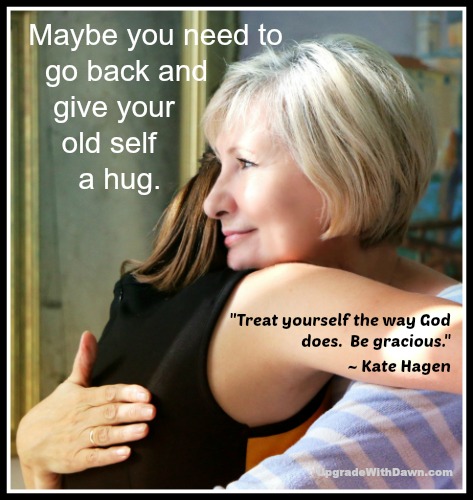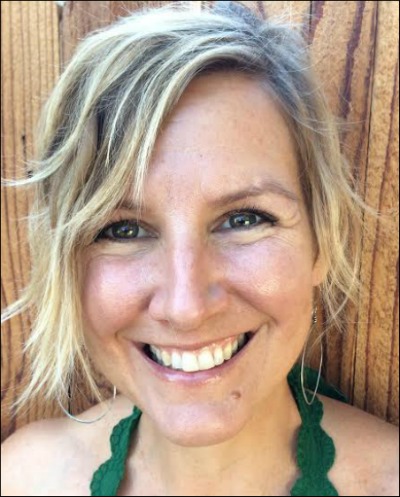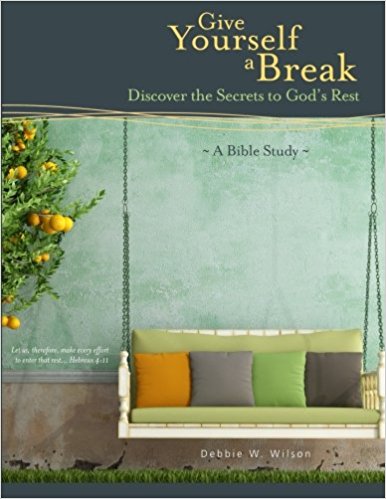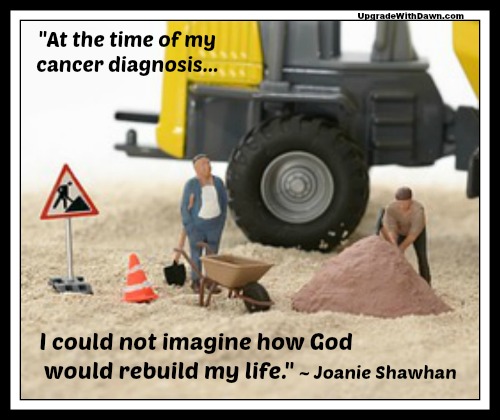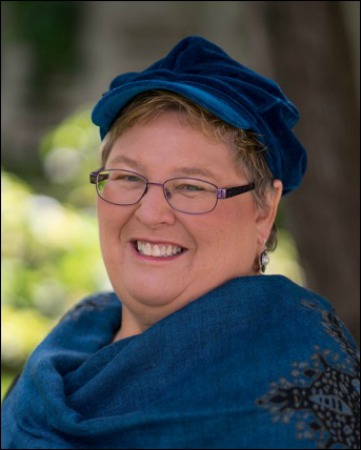Guardrails for Your Heart
Kathy Carlton Willis writes with whimsy and wit, insight and encouragement. In this Wellbeing UPGRADE, she shares four ways to protect our hearts.
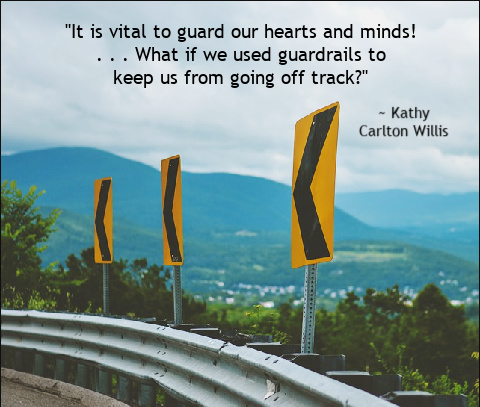
“Lately, I’ve been told I’m more guarded than I used to be," Kathy says. "I’m afraid of being burned again. There are times to be cautious, and times to be more open.”
I (Dawn) think everyone has been hurt in some way. We do tend to guard our hearts, but not always in a healthy way. I appreciate Kathy's insight into how we can guard our hearts in good, biblical ways.
Kathy continues . . .
In fairytales, the castle often has amoat surrounding it and only those permitted to enter are allowed to use the drawbridge. The moat provides a way to guard the property from intruders.
The Bible talks about guarding our hearts and I wonder if we can use a moat-method to protect what God values—our hearts.
“Guard your heart above all else, for it determines the course of your life” Proverbs 4:23 (NLT).
First, what is the heart?
We know the Bible isn’t talking about the muscle that pumps blood to the rest of our body. It is the inner being that includes our mind, will, soul, and thoughts.
It is our decision maker. Our thoughts define who we become. In this way, it is the source of our authentic identity.
What we let in to our hearts helps determine what we feel and what we choose.
It is vital to guard our hearts and minds! When we guard well, we use God’s discernment gift to grow in wisdom.
What are the enemies of our hearts?
Anything that tries to come against us and derail us.
We need to protect our hearts from whatever is likely to interfere with what Eugene Peterson called, “long obedience in the same direction.”
- Enduring faith is threatened by doubts and discouragement.
- Being overwhelmed by stress and fatigue endangers what makes every day the potential for a good day—a God-day.
A moat helps protect what is valued from potential threats. But what if we are the worst enemy of our own hearts?
Sometimes we allow too much time exploring our thoughts and our feelings, and it hinders us from what is best for our inner being. In this case, a moat won’t protect us!
Let’s use a different image than a moat, then.
What if we used GUARDRAILS to keep us from going off track?
Personal Guardrails
1. Maintain your heart on a regular basis.
Look how the NKJV words our verse (Proverbs 4:23):
“Keep your heart with all diligence, For out of it spring the issues of life.”
I think of the road crews I see working on guardrails—and the signs they post to be careful when damage is done.
2. Tap in to God’s peace.
When we experience God’s peace, He equips us with what we need to guard our hearts.
The key is the last part of the following verse—to live in Christ Jesus.
“Then you will experience God’s peace, which exceeds anything we can understand. His peace will guard your hearts and minds as you live in Christ Jesus” (Philippians 4:7 NLT).
3. Store up God’s Word.
Stock up on supplies—in this case the words in the Bible have the power to help us guard our hearts.
The guardrail is in place so we don’t stray from God’s will.
“How can a young man keep his way pure? By guarding it according to your word. With my whole heart I seek you; let me not wander from your commandments! I have stored up your word in my heart, that I might not sin against you” (Psalm 119:9–11 ESV).
4. Treasure heavenly things, not earthly ones.
“For where your treasure is, there your heart will be also” (Matthew 6:21 NLT).
As you can see, guardrails for our hearts don’t just magically appear. We have to build and maintain them. It is important work.
The heart is not only what we take to heaven with us when we die, but it helps us as we represent the King here on earth.
We can tell what’s in our hearts by evaluating what we say:
"But the things that come out of a person's mouth come from the heart, and these defile them" (Matthew 15:18).
We may not live fairytale lives, complete with castles and moats, but we get to serve a King who blesses us with heavenly treasures. The drawbridge leading to Him is Jesus Christ.
When He dwells in our hearts, we have yet another reason to put our guard up—to have restricted access to our inner beings: we don’t want to allow anything to compete against Jesus for lordship in our lives.
“Then Christ will make his home in your hearts as you trust in him. Your roots will grow down into God’s love and keep you strong” (Ephesians 3:17 NLT).
What guardrails will you put in place to protect your heart?
 Kathy Carlton Willis is God’s Grin Gal. She writes and speaks with a balance of funny and faith—whimsy and wisdom. Over a thousand of Kathy’s articles
Kathy Carlton Willis is God’s Grin Gal. She writes and speaks with a balance of funny and faith—whimsy and wisdom. Over a thousand of Kathy’s articles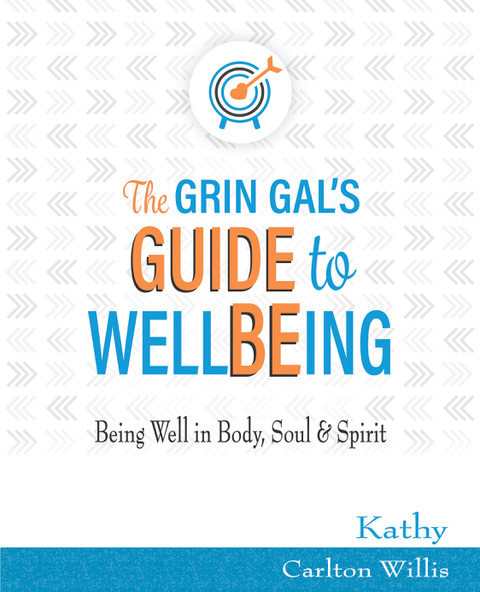 have been published and she has several books in her Grin Gal brand. Her latest books are The Grin Gal’s Guide for Wellbeing: Being Well in Body, Soul & Spirit, and the ancillary product, The Grin Gal’s Planner for Wellbeing. Set yourself up for success by joining one of Kathy’s virtual wellbeing groups. More information at kathycarltonwillis.com.
have been published and she has several books in her Grin Gal brand. Her latest books are The Grin Gal’s Guide for Wellbeing: Being Well in Body, Soul & Spirit, and the ancillary product, The Grin Gal’s Planner for Wellbeing. Set yourself up for success by joining one of Kathy’s virtual wellbeing groups. More information at kathycarltonwillis.com.
 1 Comment → Posted on
1 Comment → Posted on  Thursday, March 31, 2022 at 10:17AM
Thursday, March 31, 2022 at 10:17AM 




